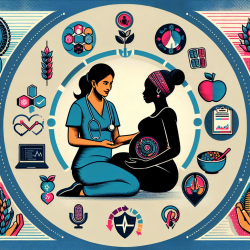Introduction: The Role of Law in Urban Health
In today's rapidly urbanizing world, where over half of the global population resides in cities, the governance of urban environments plays a crucial role in shaping public health outcomes. The research article "Law and Urban Governance for Health in Times of Rapid Change" highlights the importance of law as a tool for health promotion and governance. This blog aims to translate these insights into actionable strategies for practitioners, especially those involved in online therapy services like TinyEYE, to improve their skills and outcomes for children.
Understanding the Research
The research underscores the multifaceted role of law in promoting health within urban settings. Law can serve as a direct intervention to influence health behaviors and environments, a framework for organizing governance, and a tool for addressing broader social determinants of health. For practitioners, this means recognizing the legal context in which they operate and leveraging it to enhance health outcomes.
Practical Applications for Practitioners
- Integrate Health in Policies: Encourage schools and local institutions to adopt policies that prioritize health, such as promoting physical activity and healthy eating.
- Community Engagement: Foster strong community ties by involving parents and local leaders in health promotion activities, ensuring that interventions are culturally relevant and widely accepted.
- Equity in Services: Advocate for equitable access to online therapy services, ensuring that all children, regardless of socio-economic status, can benefit from quality care.
Encouraging Further Research
Practitioners are encouraged to delve deeper into the legal determinants of health and explore how they can be addressed within their practice. Engaging with the broader community of health professionals and legal experts can provide valuable insights and foster collaborative approaches to health promotion.
Conclusion
By understanding and utilizing the legal frameworks that govern urban environments, practitioners can significantly enhance their impact on children's health outcomes. The integration of law and governance into health promotion strategies is not only beneficial but essential for creating equitable and sustainable health improvements.
To read the original research paper, please follow this link: Law and urban governance for health in times of rapid change.










